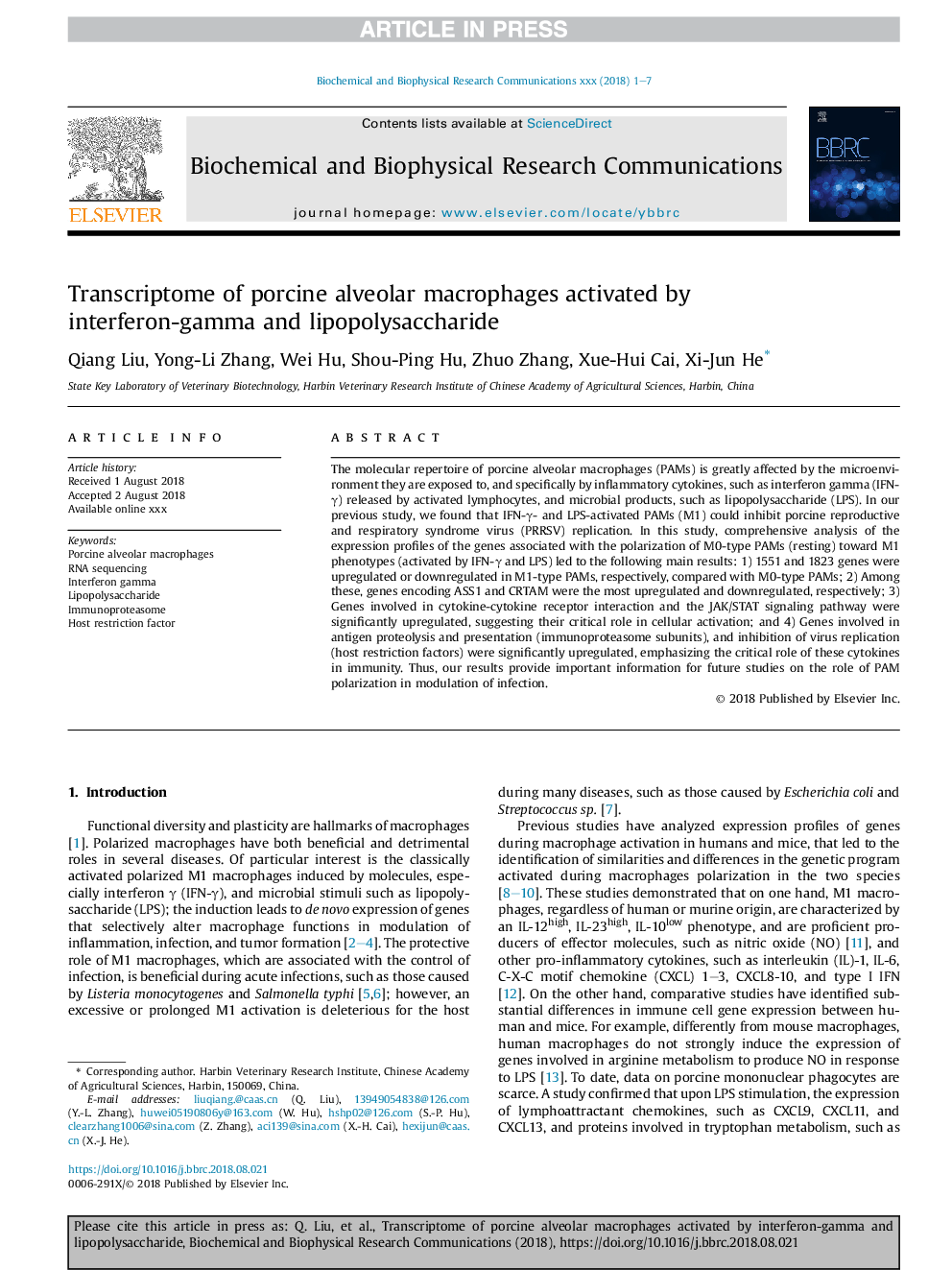| Article ID | Journal | Published Year | Pages | File Type |
|---|---|---|---|---|
| 8961842 | Biochemical and Biophysical Research Communications | 2018 | 7 Pages |
Abstract
The molecular repertoire of porcine alveolar macrophages (PAMs) is greatly affected by the microenvironment they are exposed to, and specifically by inflammatory cytokines, such as interferon gamma (IFN-γ) released by activated lymphocytes, and microbial products, such as lipopolysaccharide (LPS). In our previous study, we found that IFN-γ- and LPS-activated PAMs (M1) could inhibit porcine reproductive and respiratory syndrome virus (PRRSV) replication. In this study, comprehensive analysis of the expression profiles of the genes associated with the polarization of M0-type PAMs (resting) toward M1 phenotypes (activated by IFN-γ and LPS) led to the following main results: 1) 1551 and 1823 genes were upregulated or downregulated in M1-type PAMs, respectively, compared with M0-type PAMs; 2) Among these, genes encoding ASS1 and CRTAM were the most upregulated and downregulated, respectively; 3) Genes involved in cytokine-cytokine receptor interaction and the JAK/STAT signaling pathway were significantly upregulated, suggesting their critical role in cellular activation; and 4) Genes involved in antigen proteolysis and presentation (immunoproteasome subunits), and inhibition of virus replication (host restriction factors) were significantly upregulated, emphasizing the critical role of these cytokines in immunity. Thus, our results provide important information for future studies on the role of PAM polarization in modulation of infection.
Keywords
Related Topics
Life Sciences
Biochemistry, Genetics and Molecular Biology
Biochemistry
Authors
Qiang Liu, Yong-Li Zhang, Wei Hu, Shou-Ping Hu, Zhuo Zhang, Xue-Hui Cai, Xi-Jun He,
